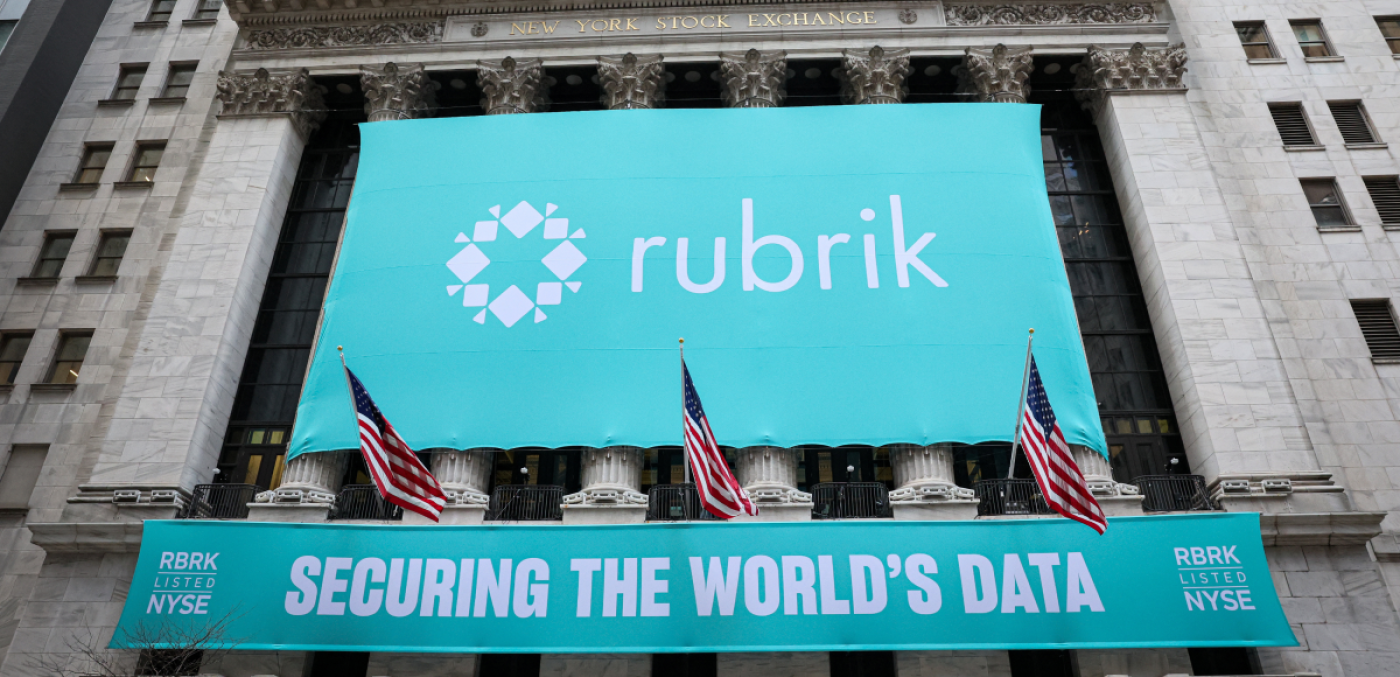Ten years after its founding, cybersecurity firm Rubrik entered the public marketplace on Thursday, April 25, 2024.
Shares of the Palo Alto, Calif.-based company gained 16% on its first day of trading over its IPO price of $32 a share set on Wednesday, April 24. The Thursday closing price of $37 gave Rubrik, whose ticker is RBRK, a market value of $6.5 billion based on the company’s 23.5 million outstanding shares, according to Bloomberg.
Just prior to its debut, Rubrik’s Forge Price™ was $34.87 as of April 25, 2024 which implied a valuation of $5.92 billion at the time.
Rubrik’s share-price gain over its IPO price is just the latest sign of an improving market for IPOs. In just one week in March, social network site Reddit and chipmaker Astera Labs launched IPOs. And on April 18, digital marketing firm Ibotta followed suit with a first-day gain.
And at least four more privately-held companies – Circle Internet Financial, Egnyte, Klarna, and Neo4j – have signaled through filings and press accounts that they may go public in the coming weeks.
Rubrik, led by CEO Bipul Sinha, makes cloud-based ransomware protection software and data backup software, serving more than 5,000 customers, including Home Depot, Sephora, PepsiCo, and Allstate. The company’s main product is called Zero Trust Data Security.
According to CNBC, Rubrik, which has received financial backing from Microsoft, generates annual recurring revenue of over $600 million, and its sales are growing in high single-percentage digits, according to the sources.
Aside from Microsoft, the company has attracted a number of leading investors including Lightspeed, Bain Capital, Khosla Ventures, IVP, and Greylock Partners.
Though cybersecurity has emerged as a highly competitive industry with thousands of players in both the public and private marketplace, Rubrik has won the support of leading investors including Microsoft by hewing to CEO Sinha’s vision of where he thinks cybersecurity needs to be heading.
In an interview with trade publication Tech Radar Pro, Sinha said that businesses who purchase cybersecurity software are focusing too heavily on protection, rather than what he calls “cyber resilience.” As Sinha sees it, businesses should have a recovery strategy that lays out the next steps following a breach so that the business can continue to operate alongside their data recovery operations.




